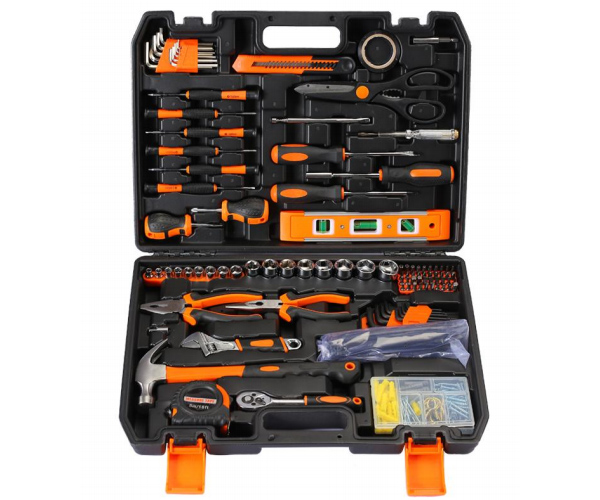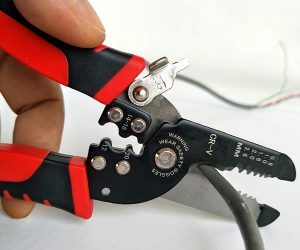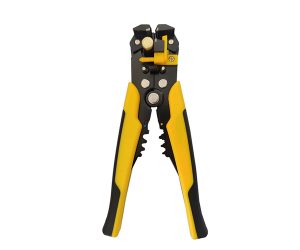When you need a trusted hand tools factory to manufacture top-quality tools, look no further. The importance of choosing the right factory cannot be overstated. With so many options available, it’s essential to find a manufacturer that meets your specific needs. Whether you’re a wholesaler, distributor, or retailer, selecting a reliable hand tools factory is crucial to your business success. This article will guide you through the key factors to consider when choosing a hand tools factory, how it can benefit your business, and why working with the right partner is a game-changer.
1. What Are Hand Tools and Why Are They Important for DIY and Professional Use?
Hand tools are the unsung heroes of the trades and DIY projects alike. These tools, which require manual operation, are essential for a wide range of tasks—from simple home repairs to complex construction projects. In fact, no workshop is complete without a proper set of hand tools. But here’s the kicker—choosing the right hand tools can mean the difference between a quick, smooth job and a frustrating one.
For DIY enthusiasts, hand tools provide the flexibility to complete various home improvement tasks without relying on power tools. They are often more affordable and versatile. On the professional side, hand tools are indispensable for tradespeople who rely on them daily for tasks that require precision, like carpentry, plumbing, or electrical work. So, what’s the real story? Hand tools are critical not only for efficiency but for ensuring the quality of work.
When selecting hand tools, it’s essential to consider their durability, ergonomics, and material quality. High-quality hand tools are designed to last longer, reduce user fatigue, and improve overall efficiency. This is where a reliable hand tools factory comes in. They can provide products that meet these demands while ensuring safety and comfort for the user.
| Factor | DIY Use | Professional Use |
|---|---|---|
| Durability | Medium | High |
| Versatility | High | Medium |
| Ergonomics | Medium | High |
2. How Can a Hand Tools Set Improve Your Work Efficiency?
If you’ve ever been stuck in the middle of a project, searching for that one tool you need, you know how frustrating it can be. Ready for the good part? A complete hand tools set is the solution. Having a well-organized set of tools tailored to your specific needs will significantly improve your work efficiency.
The key benefit of a hand tools set is that it provides you with a variety of tools, all in one place. This eliminates the time spent searching for individual tools, allowing you to focus on the task at hand. A set typically includes a range of tools, such as wrenches, screwdrivers, pliers, and hammers, designed for different tasks. It’s much easier to work efficiently when all your tools are organized and readily available. What’s more, a comprehensive set ensures that you have the right tool for every job, avoiding work interruptions caused by not having the proper equipment.
A hand tools set is also a cost-effective solution. Instead of purchasing each tool individually, you can buy them in a set at a lower cost, saving you money. Additionally, if you choose a factory that offers OEM (Original Equipment Manufacturer) services, you can customize your hand tools set according to your specific needs. This level of personalization ensures that you’re getting exactly what you need for maximum efficiency.
| Tool Type | Common Use | Efficiency Benefit |
|---|---|---|
| Wrenches | Tightening bolts | Speed and precision |
| Screwdrivers | Driving screws | Easy handling |
| Pliers | Gripping and pulling | Increased control |
3. What Should You Look for in a Hand Tools Factory?
Finding a reliable hand tools factory can be a challenge, but it’s essential for ensuring the quality and consistency of the tools you sell. So, what should you look for? Well, there are a few key factors that can help you make the right choice.
First, you want to ensure that the factory has a good reputation. A trusted factory will have a history of producing high-quality products and meeting deadlines consistently. You can verify this by reading customer reviews and testimonials or by asking for references. Next, you need to consider the factory’s OEM capabilities. A factory that can produce custom tools according to your specifications is invaluable for creating a unique product line. Ready for the kicker? A factory with solid OEM capabilities can help you differentiate your brand from competitors, giving you a competitive edge.
Moreover, check for certifications and quality control processes. The best factories adhere to strict quality standards, ensuring that their products meet industry regulations and safety requirements. It’s also a good idea to look for a factory that is transparent in its production processes and willing to provide you with detailed information about materials, production methods, and testing.
| Factor | Importance | Benefit |
|---|---|---|
| Reputation | High | Quality assurance |
| OEM Capabilities | High | Customization |
| Certifications | Medium | Compliance |
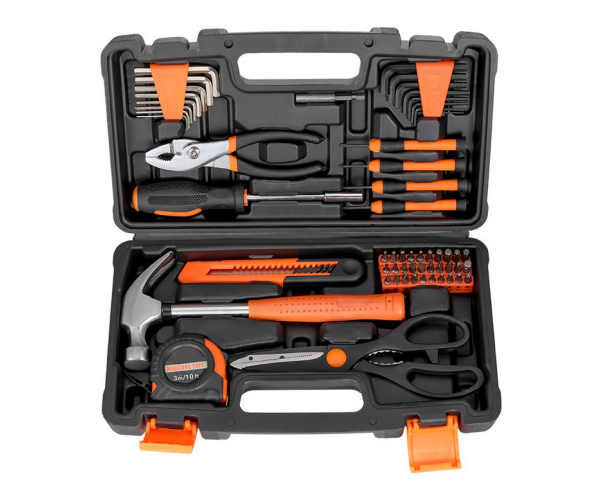
4. Why Choose a Trusted Hand Tools Factory for Your Manufacturing Needs?
Choosing a trusted hand tools factory is crucial for maintaining the reliability and performance of your products. You might be wondering, why is trust so important? Simply put, working with a trusted factory ensures that you’re getting high-quality products, delivered on time, every time.
Trust is the foundation of any successful business relationship. When you choose a reliable factory, you’re not just purchasing tools; you’re investing in a long-term partnership. A trustworthy factory will work with you to meet your specific needs, whether that means providing customized tools, adjusting production schedules, or accommodating bulk orders. What’s more, a reliable factory will have the systems in place to address any issues that arise promptly, ensuring that your business operations run smoothly.
Working with a trusted factory also gives you peace of mind. You won’t have to constantly worry about product defects or delays. Instead, you can focus on growing your business, knowing that your manufacturing needs are in good hands. A solid relationship with your factory partner can lead to more favorable terms, better pricing, and a steady supply of quality tools for your customers.
| Benefit | Explanation | Impact |
|---|---|---|
| Reliable Delivery | On-time production and delivery | Improved efficiency |
| Customization | Tailored products to client needs | Competitive edge |
| Long-term Partnership | Consistent communication and support | Stability |
5. What Are the Key Advantages of Working with a Hand Tools Set Factory?
When you partner with a hand tools set factory, you’re not just buying products—you’re gaining access to a wide range of advantages that can help your business thrive. Let’s take a closer look at the benefits.
The first advantage is cost-effectiveness. A factory can produce hand tools sets in bulk, which means lower production costs. This reduction in costs can be passed on to you, making it easier to offer competitive pricing to your customers. What’s the real story? A lower price point doesn’t have to mean lower quality. A trusted factory can maintain high standards while keeping costs down, giving you the best of both worlds.
Another key advantage is the ability to offer customized tool sets. A factory with OEM capabilities can design tool sets specifically for your business needs, ensuring that you get the exact tools your customers want. Whether you’re catering to professional contractors or DIY enthusiasts, a customized set can meet the unique demands of your target audience.
Finally, working directly with a factory means faster lead times and more control over the production process. You’ll have a direct line of communication with the manufacturer, allowing you to resolve issues quickly and make adjustments as needed. This level of flexibility can be a game-changer for your business.
| Advantage | Explanation | Impact |
|---|---|---|
| Cost-effectiveness | Bulk production reduces costs | Lower prices |
| Customization | Tailored tool sets | Meet client needs |
| Faster Lead Times | Direct communication with the factory | Improved flexibility |
6. How to Ensure High-Quality Manufacturing in Hand Tools?
Ensuring high-quality manufacturing in hand tools is non-negotiable. But here’s the kicker—just because a factory promises quality doesn’t always mean it delivers. What can you do to ensure your hand tools are top-notch? Let’s break it down.
The first step in ensuring quality is choosing a factory with a proven track record. Look for a manufacturer with experience in the hand tools industry. A factory that has been around for a while likely has a well-established process for producing high-quality tools. But what makes their process work? A key part of the manufacturing process is raw material selection. The materials used in the production of hand tools directly impact their performance and durability. Quality factories source high-grade metals and composites that can withstand the stress and strain of daily use.
Another critical factor is precision during production. High-quality hand tools require precise manufacturing, especially when it comes to parts like handles, jaws, or gripping surfaces. Factories that invest in advanced machinery and robotics are more likely to produce tools that meet exacting specifications. Ready for the good part? When you choose a factory that uses automated and precision-driven processes, you reduce the risk of human error and inconsistencies in production.
Furthermore, regular testing is essential for verifying tool quality. This includes stress testing, ergonomics evaluation, and wear-resistance tests. A factory that implements thorough testing protocols can identify potential defects early on, ensuring that only top-quality tools make it to the market.
| Quality Factor | Importance | Impact |
|---|---|---|
| Material Selection | Determines durability | Long-lasting tools |
| Precision Manufacturing | Ensures tool accuracy | Enhanced performance |
| Testing Protocols | Verifies tool function | Reduced defects |
7. Why OEM (Original Equipment Manufacturer) Capabilities Matter in Hand Tools Manufacturing?
When it comes to hand tools, the ability to work with a manufacturer that offers OEM capabilities is crucial. But what exactly does OEM mean, and why does it matter? Ready for the kicker? OEM capabilities allow for customized products that perfectly align with your business’s specific needs.
OEM, in the context of hand tools, refers to a factory’s ability to manufacture products based on the unique designs and specifications provided by the buyer. This means that you can have custom hand tools or tool sets that reflect your brand, meet particular performance standards, and address the specific requirements of your target audience. What’s the real story? With OEM manufacturing, your product line is not just another off-the-shelf tool; it becomes a distinctive offering in the marketplace.
This is especially beneficial for businesses that want to stand out from the competition. By working with a factory that offers OEM services, you can design tools that are tailored to your market’s needs. For example, if you are catering to professional contractors, you might want to customize tools for higher durability or precision. Alternatively, if you’re targeting DIY customers, you could offer easier-to-use tools with ergonomic designs.
OEM capabilities also ensure that production can be scaled quickly. You don’t have to worry about delays or lack of availability—factories can adjust production to meet demand, helping your business stay flexible and responsive. Furthermore, working with an OEM factory often results in lower production costs, as tools are designed specifically for your needs and mass-produced to save on manufacturing overhead.
| Benefit | Explanation | Impact |
|---|---|---|
| Customization | Tailored designs to client specifications | Differentiation |
| Flexibility | Adjust production schedules as needed | On-time delivery |
| Cost Efficiency | Reduced overhead through mass production | Lower production costs |
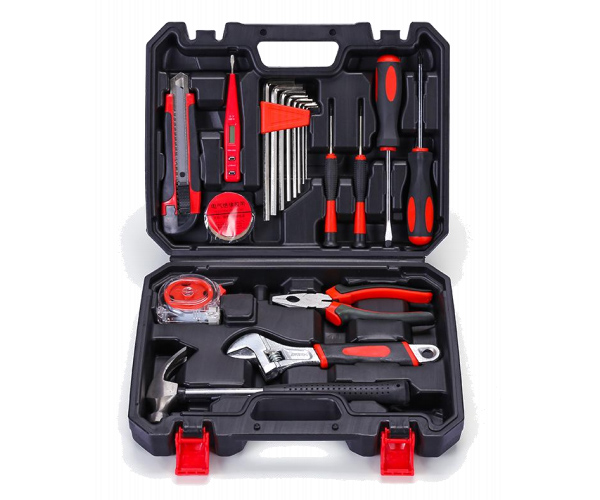
8. What Are the Common Types of Hand Tools Available from Factories?
When working with a hand tools factory, it’s important to understand the types of tools that can be produced. So, what are the most common hand tools available, and which ones are essential for your business? Let’s dive in.
Hand tools come in many shapes and sizes, but some of the most commonly produced tools include wrenches, screwdrivers, pliers, hammers, and utility knives. Each type of tool serves a specific purpose, and factories often produce a wide range of these to meet different customer needs. Take wrenches, for example. They are designed to tighten or loosen bolts and nuts and come in various forms, such as adjustable, socket, and pipe wrenches. Ready for the good part? Factories that specialize in hand tools typically offer a variety of these wrench types, allowing you to choose the one that best suits your needs.
Screwdrivers are another staple in the hand tools category. These are essential for driving screws into different surfaces. The versatility of screwdrivers—ranging from flathead to Phillips—makes them indispensable for various tasks. Additionally, pliers are used to grip, bend, or cut materials, and hammers are used for driving nails or breaking objects apart. What’s the real story? These tools are often grouped into sets for convenience and cost savings.
A good factory will produce high-quality versions of these tools, using durable materials and precise manufacturing methods to ensure each tool performs its job efficiently and lasts a long time. Whether you are selling to DIY enthusiasts or professionals, a factory that offers a wide range of hand tools allows you to cater to a broader customer base.
| Tool Type | Common Use | Availability from Factories |
|---|---|---|
| Wrenches | Tightening bolts | Adjustable, Socket, Pipe |
| Screwdrivers | Driving screws | Flathead, Phillips, Torx |
| Pliers | Gripping and bending | Needle nose, Diagonal |
9. How to Select the Best Hand Tools Set for Your Needs?
Selecting the best hand tools set for your needs can be daunting, but it’s crucial for both efficiency and cost-effectiveness. So, what’s the key to choosing the right set? Let’s break it down.
First, you need to consider the type of work you’ll be doing. If you’re a professional contractor, you’ll need a more comprehensive set that includes tools designed for heavy-duty tasks. On the other hand, DIY enthusiasts might opt for a smaller, more basic set. Ready for the kicker? The size and versatility of the set can significantly impact how efficiently you work. A good set will include a variety of tools that are useful for different projects.
Next, you should focus on the quality of the tools. It’s better to invest in a slightly more expensive set that is made from durable materials, such as steel or carbon fiber, than to buy a cheap set that will wear out quickly. What’s the real story? Durability ensures that your tools last for years, even with frequent use. Be sure to check for any warranties or guarantees that come with the tool set, as this can offer peace of mind regarding quality.
Lastly, think about the organization of the set. A well-organized set will come in a durable case that keeps each tool in its place. This organization helps you find the right tool quickly, saving you time and frustration during projects. Ready to get started? By considering the type of work, quality, and organization, you can select a hand tools set that’s perfect for your needs.
| Consideration | Explanation | Impact |
|---|---|---|
| Type of Work | Determine whether the set meets project demands | Improved efficiency |
| Durability | Choose materials that will last | Long-term use |
| Organization | Ensure easy tool access and storage | Time-saving |
10. What is the Manufacturing Process for Hand Tools in a Factory?
The manufacturing process for hand tools is complex and involves multiple stages. But here’s the kicker—each stage is critical in ensuring that the final product meets the highest standards of quality and performance. So, how does it all come together?
The first step in the manufacturing process is design. Engineers and designers collaborate to create tools that are ergonomic, efficient, and durable. What’s the real story? Tools that are well-designed not only perform better but are also safer for users. After the design is finalized, the next step is material selection. The materials used in manufacturing hand tools vary, but they generally include high-strength metals such as stainless steel, carbon steel, or alloy steel. These materials ensure that the tools are tough enough to withstand the demands of daily use.
Next comes the actual production process, which often involves forging, casting, or stamping the materials into the desired shapes. Factories use high-tech machines that can replicate designs with precision. Ready for the good part? After the tools are shaped, they undergo several rounds of finishing and testing to ensure they meet safety and durability standards. These tests include checking the strength, wear resistance, and ergonomics of each tool. Once the tools pass these tests, they are packaged and ready for distribution.
| Stage | Description | Outcome |
|---|---|---|
| Design | Tool design and engineering | Efficient and safe tools |
| Material Selection | Choosing durable materials | Strength and longevity |
| Production Process | Forging, casting, or stamping | High-precision tools |
11. How Can You Ensure Consistent Supply from a Hand Tools Factory?
Consistency is key when dealing with hand tools manufacturing. What makes a factory consistent? Well, there are several factors that contribute to maintaining a steady supply of high-quality tools. Ready for the good part? Working with a reliable factory ensures that your orders are fulfilled on time, every time.
The first factor is clear communication. You need to work closely with your factory to establish production schedules and timelines. This helps to ensure that the factory can meet your demands without delay. What’s the real story? By setting clear expectations and maintaining regular communication, you can prevent any miscommunication that might lead to delays.
Another factor is a factory’s ability to scale production. A reliable hand tools factory will have the capability to adjust production based on your needs. If you experience a surge in orders or need a larger batch, the factory should be able to meet these demands without compromising quality. Ready for the kicker? A well-established factory will have the infrastructure and systems in place to handle large orders efficiently, minimizing any disruptions to your supply chain.
Finally, working with a factory that has multiple suppliers and partners ensures that raw materials are always available, reducing the risk of production stoppages. A consistent supply chain is critical for maintaining inventory and meeting customer demand.
| Factor | Explanation | Impact |
|---|---|---|
| Communication | Clear production schedules | On-time delivery |
| Scalability | Ability to adjust to demand | Flexibility |
| Supplier Network | Multiple raw material sources | Reliable supply |
12. What Are the Benefits of Hand Tools Set for Professional Contractors?
For professional contractors, a hand tools set is more than just a collection of tools—it’s a vital business asset. But here’s the kicker—investing in the right set can significantly boost your work efficiency and bottom line.
A well-chosen hand tools set is designed to meet the demanding needs of contractors. These sets typically include heavy-duty tools that can withstand the rigorous demands of construction, plumbing, electrical work, and more. Ready for the good part? A professional-grade hand tools set will also be ergonomic, reducing fatigue during long workdays. What’s the real story? Ergonomic tools improve comfort and reduce the risk of repetitive strain injuries, which is crucial for contractors who work long hours.
Another benefit of hand tools sets is their portability. Contractors need to move from job site to job site, and having a set that is easy to transport ensures that they always have the right tools at hand. A good set will come in a sturdy case that can withstand rough conditions, ensuring that the tools remain organized and protected during transit.
Lastly, a high-quality hand tools set helps contractors complete tasks faster and more efficiently. With all the right tools in one set, contractors can focus on their work without wasting time looking for the right tool. This leads to faster job completion and ultimately more profit.
| Benefit | Explanation | Impact |
|---|---|---|
| Durability | Heavy-duty, long-lasting tools | Reduced downtime |
| Ergonomics | Tools designed for comfort | Reduced fatigue |
| Portability | Easy to transport | Increased mobility |
13. How Do You Evaluate a Hand Tools Factory’s Customer Service and Support?
Customer service is often overlooked when choosing a hand tools factory, but it plays a crucial role in maintaining a smooth relationship with your supplier. So, what should you look for in a factory’s customer service?
The first thing to consider is responsiveness. A good factory will respond to inquiries promptly, whether it’s about product availability, customization options, or order status. What’s the real story? Timely responses can help prevent delays and ensure your orders are processed efficiently. Ready for the kicker? Factories with excellent customer support also have the ability to address issues quickly, such as defects or delivery problems.
Another key aspect is the availability of after-sales support. A reliable factory will offer warranty services and be willing to resolve any problems with the products you’ve purchased. This ensures that you’re not left stranded if something goes wrong. Furthermore, a factory with knowledgeable customer service representatives can assist you with technical questions, product recommendations, and troubleshooting.
Lastly, consider the overall communication experience. Does the factory make it easy for you to place orders, track shipments, or request product information? A factory that prioritizes customer service will provide clear and easy-to-use communication channels.
| Service Factor | Explanation | Impact |
|---|---|---|
| Responsiveness | Timely replies to inquiries | Prevent delays |
| After-Sales Support | Warranty and issue resolution | Customer satisfaction |
| Communication | Easy ordering and tracking systems | Improved efficiency |
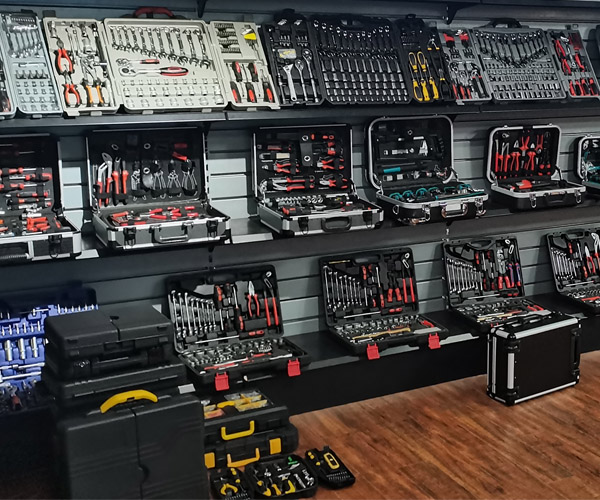
14. What Are the Environmental and Sustainability Considerations in Hand Tools Manufacturing?
Environmental concerns are increasingly important in manufacturing, and hand tools factories are no exception. Ready for the good part? By choosing a sustainable factory, you can help reduce the environmental impact of tool production while still meeting your business needs.
One major consideration is the use of eco-friendly materials. Factories that focus on sustainability will use materials that are recyclable, such as stainless steel or other eco-conscious metals. What’s the real story? This reduces waste and ensures that the tools produced have minimal environmental impact.
Another factor is energy efficiency. Factories that prioritize energy-efficient production processes can lower their carbon footprint and reduce operational costs. Ready to dive in? By using energy-efficient equipment and adopting sustainable practices, factories can minimize resource consumption while maintaining high production standards.
Finally, many hand tools manufacturers are adopting waste reduction initiatives, such as recycling scrap materials or reusing production by-products. This helps to ensure that manufacturing processes are as sustainable as possible.
| Sustainability Factor | Explanation | Impact |
|---|---|---|
| Eco-friendly Materials | Use of recyclable metals | Reduced environmental impact |
| Energy Efficiency | Adoption of energy-saving equipment | Lower carbon footprint |
| Waste Reduction | Recycling scrap materials | Reduced waste |
15. Why Are Relationships with a Hand Tools Factory Crucial for Long-Term Business Success?
Building a long-term relationship with your hand tools factory is one of the most important steps you can take for business success. Ready for the kicker? When you form a strong partnership, you gain more than just tools—you gain a strategic ally.
A solid relationship with your factory provides stability. What’s the real story? A reliable supplier who understands your needs can help you navigate fluctuations in demand, manage inventory, and streamline production processes. Ready to dive in? Having a trustworthy partner also means that you can expect consistent quality, on-time deliveries, and proactive support when issues arise.
In addition, fostering a strong relationship with your factory can lead to more favorable terms and pricing. Over time, as the factory gets to know your business, they may offer you better deals or more flexible terms. What’s the real benefit? It’s the foundation for long-term business growth and success.
| Relationship Factor | Explanation | Impact |
|---|---|---|
| Stability | Predictable supply and consistent quality | Business growth |
| Flexibility | Better terms and pricing | Cost savings |
| Long-Term Partnership | Strong, proactive support | Reliable delivery |
FAQ
Q1: What are hand tools?
Hand tools are devices used for tasks such as construction, repair, and maintenance that are operated manually, without external power sources.
Q2: How does a hand tools factory ensure quality?
A reliable hand tools factory maintains strict quality control processes, conducts regular testing, and adheres to industry standards to ensure the tools meet customer expectations.
Q3: What are OEM capabilities in hand tools manufacturing?
OEM capabilities refer to a factory’s ability to produce tools based on a customer’s specific design and branding requirements, offering customization and unique product lines.
Q4: Why should I invest in a professional hand tools set?
A professional hand tools set provides a wide variety of tools tailored to specific tasks, saving time, ensuring quality, and enhancing productivity for both DIY enthusiasts and professionals.
Q5: How do I know if a hand tools factory is reliable?
A reliable hand tools factory can be assessed by checking their reputation, quality certifications, customer reviews, and consistency in meeting production deadlines.

